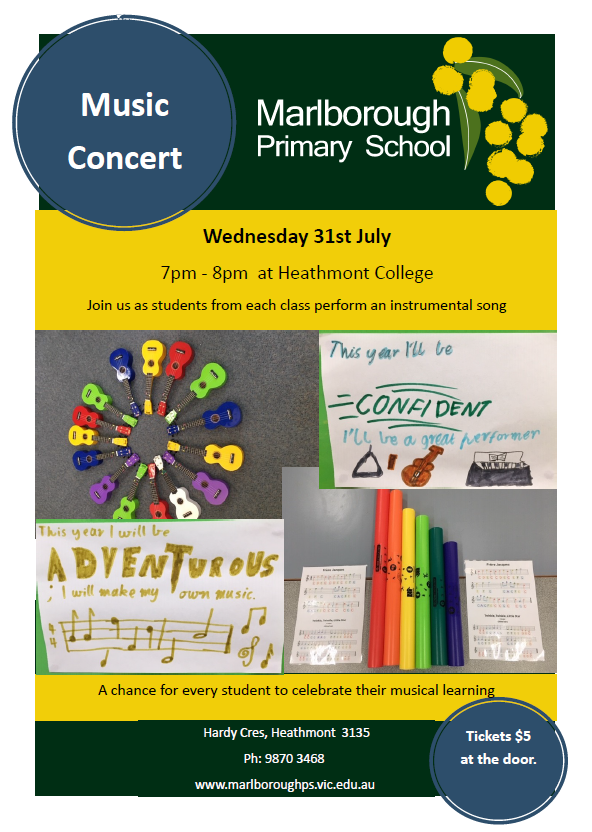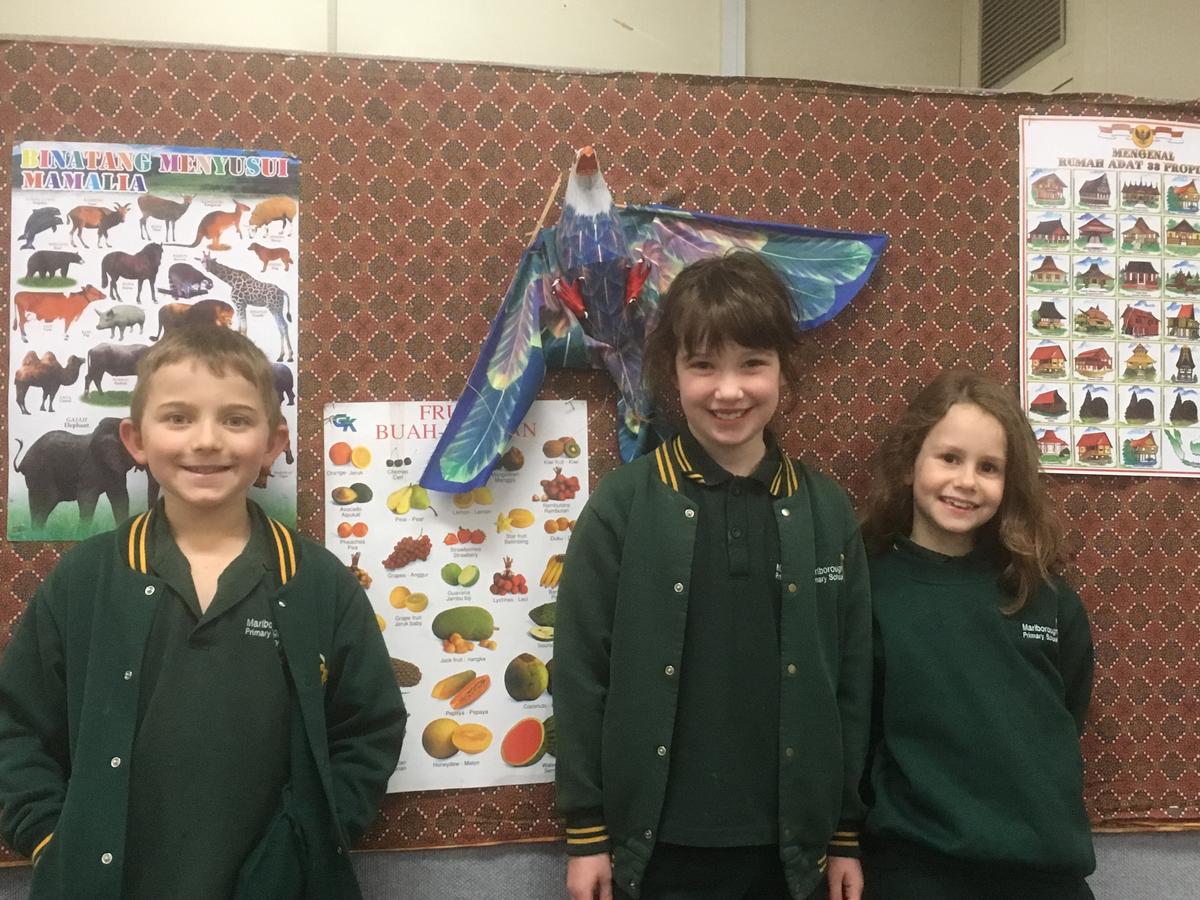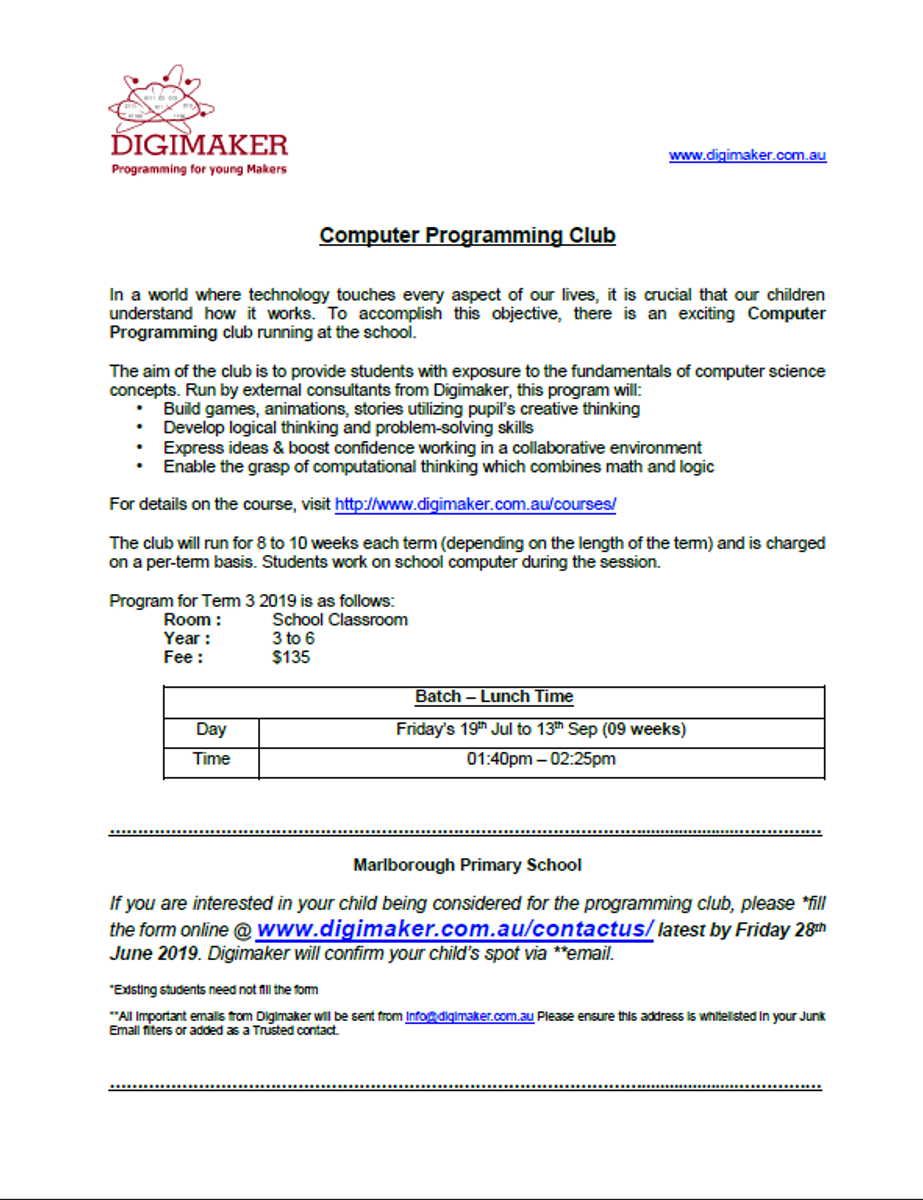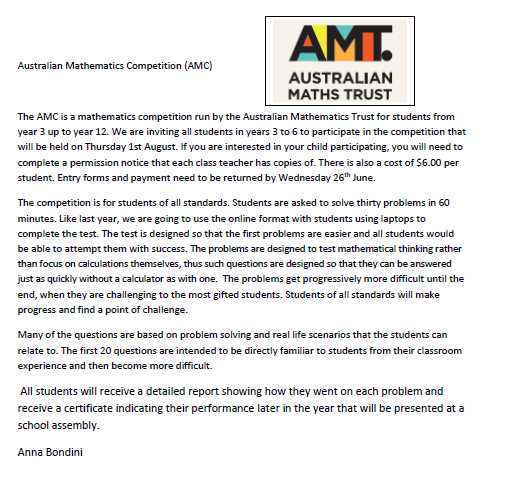School News
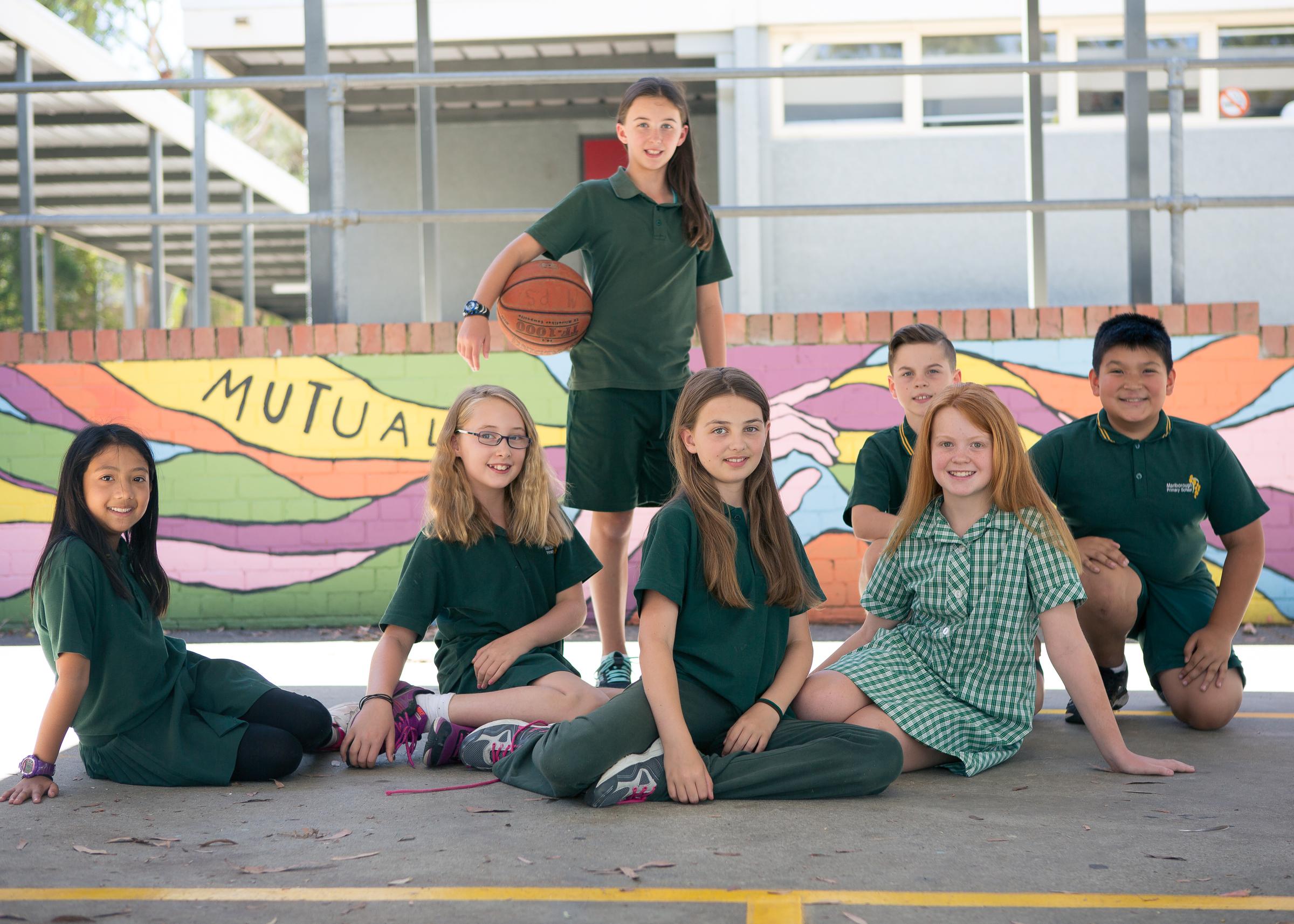
Sayembara Lisan -
State-wide Indonesian Speaking Competition Results
On Friday 14th of June, I had the pleasure of attending the State Awards Ceremony at Melbourne University. We had three students receive awards:
- Willow J-B - Grade 2, received a Highly Commended award for her division in the state.
- Xanthe N- Grade 2, received Second Place for her division in the state
- Oli A- Grade 4, received Third Place award for his division in the state.
It was also great to see one of our past students Chloe C, who received a second place in the Year 9 category from Heathmont College at the awards ceremony with her teacher, Bu Devathas.
It was an amazing achievement and our three students should be very proud of their results. Well done Willow, Xanthe and Oli!
Selamat Datang Bu Henna!
We are very excited to announce that we have secured an Indonesian language assistant for 2019. Henna Marini will be joining us at Marlborough Primary School next term. The language assistant program is designed to make use of native speakers to support the delivery of second language programs. It is an initiative of the Victorian Education Department. We are really looking forward to enjoying enriching language and cultural experiences during Henna’s stay.
Digimaker Computer Programming Club
Chaplain’s Note – June 2019
Helping Children to Manage Feelings
Children can be quickly taken over by feelings of excitement, frustration, fear or joy and when the feelings come they are often intense.
When feelings take over children’s behaviour, they can often find it difficult to manage without support. Parents and carers can support their children in learning to manage their feelings and behaviour. Learning how to recognise and manage feelings is an important part of children’s social and emotional development.
Before children can learn to control their feelings, they must learn how to notice them. We can help children notice feelings by noticing them ourselves and giving them labels such as angry, sad, nervous, excited, frustrated, embarrassed, worried, surprised, or happy. Naming our feelings helps to make them more manageable. Learning to pay attention to how they are feeling helps children understand that all feelings are okay and that they can have emotions without being controlled by them.
Talking with children about what it’s like when you’re angry, sad, nervous or excited helps them find ways to express feelings without having to act them out through negative behaviours.
We can support children by creating space for talking about difficult emotions. Although all feelings are okay, some feelings can be more difficult to cope with than others. We can help children to separate a feeling from a difficult reaction by helping them name it. Being able to say or think “I am feeling angry” means that children don’t have to act really angry before we take notice. Learning to name their feelings allows children to choose how they will respond.
Learning skills for managing feelings takes practice. Noticing and naming feelings comes first. Talking about feelings in everyday conversations makes it easier when the difficult feelings come up.
Dorothy Dullege
School Chaplain
Australian Maths Competition 2019
Bendigo Bank School Banking
Just a reminder that School Banking is every Thursday.
If you would like an information pack/application form please collect one from the school office.

